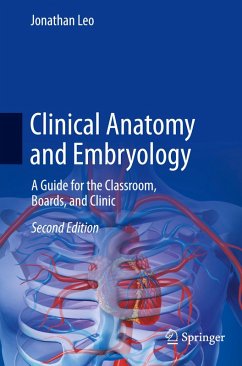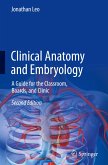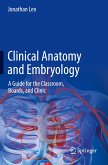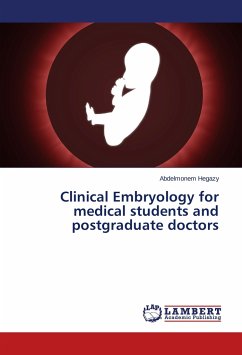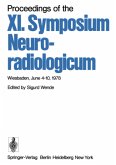This second edition was updated and will again be of great value to medical and other allied health students. It seeks to aid students in gaining a general understanding of clinical anatomy before embarking on a specific discipline-focused program.
The purpose of this text is not an exhaustive deep dive into all of gross anatomy. There are numerous other books that have done this. Likewise, it is not meant to be just a quick overview. Rather, it is meant to present each anatomical topic with clinical scenarios in mind. Hopefully, it will help first-year students with their course, second-year students looking for a refresher before boards, and third- and fourth-year students looking for a refresher before rotations.
Organized among two sections, the first includes chapters that cover the anatomy of the head and neck, abdomen, thorax, pelvis and perineum, lower limb, upper limb, and back. What's more, section two briefly examines the embryology and development ofthe organ systems, such as the development of major organs.
This new edition is again an invaluable resource for students who wish to retain anatomical knowledge on the entire human body despite an eventual career in one particular discipline of medicine. It is complemented by its previously published sister text Medical Neuroanatomy for the Boards and the Clinic, now in second edition, which applies similar principles of anatomical information with a focus on identifying potentially malignant lesions.
The purpose of this text is not an exhaustive deep dive into all of gross anatomy. There are numerous other books that have done this. Likewise, it is not meant to be just a quick overview. Rather, it is meant to present each anatomical topic with clinical scenarios in mind. Hopefully, it will help first-year students with their course, second-year students looking for a refresher before boards, and third- and fourth-year students looking for a refresher before rotations.
Organized among two sections, the first includes chapters that cover the anatomy of the head and neck, abdomen, thorax, pelvis and perineum, lower limb, upper limb, and back. What's more, section two briefly examines the embryology and development ofthe organ systems, such as the development of major organs.
This new edition is again an invaluable resource for students who wish to retain anatomical knowledge on the entire human body despite an eventual career in one particular discipline of medicine. It is complemented by its previously published sister text Medical Neuroanatomy for the Boards and the Clinic, now in second edition, which applies similar principles of anatomical information with a focus on identifying potentially malignant lesions.

